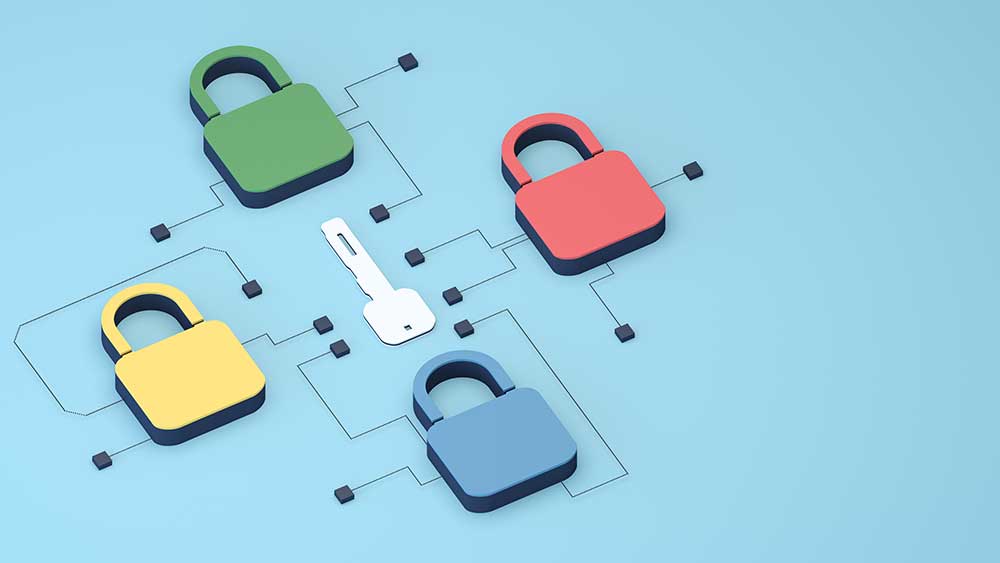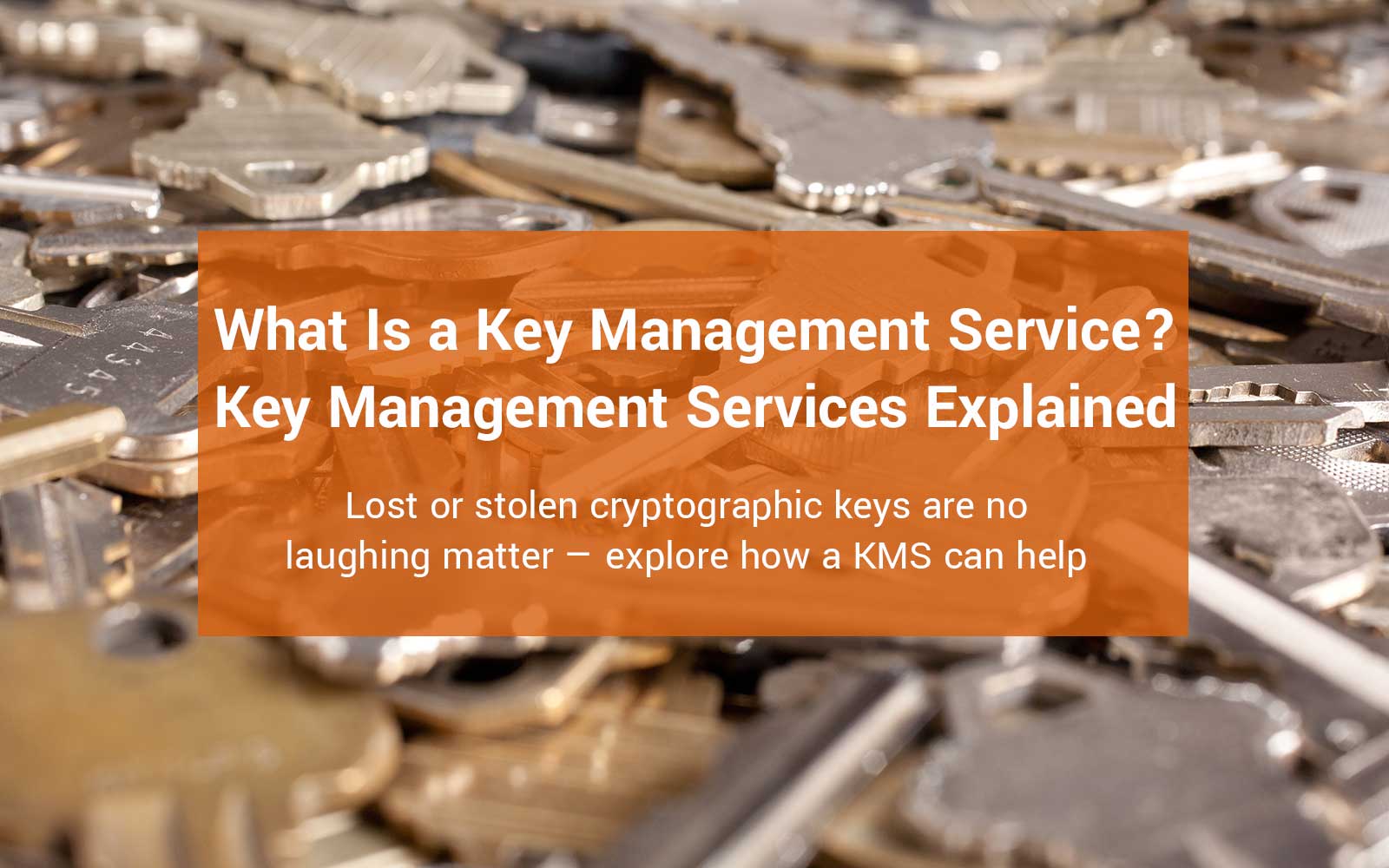Understanding Key Management as a Service: A Comprehensive Overview
Key management as a service (KMaaS) is a cloud-based solution designed to secure, manage, and maintain the confidentiality of digital keys and certificates. These keys are essential for encrypting and decrypting sensitive data, ensuring secure communication between applications, and verifying digital identities. As cybersecurity threats continue to evolve, the demand for KMaaS solutions has grown significantly in the market.
Key Management as a Service vs. Traditional Key Management: A Comparative Analysis
Traditional key management methods involve on-premises hardware security modules (HSMs) or manual key management processes, which can be time-consuming, expensive, and prone to human errors. In contrast, key management as a service (KMaaS) offers several advantages that make it an attractive alternative.
Firstly, KMaaS is highly cost-effective, as it eliminates the need for expensive hardware and maintenance costs associated with on-premises solutions. Additionally, KMaaS provides scalability, allowing organizations to easily manage and grow their key management infrastructure as needed.
Another significant advantage of KMaaS is its ease of use. Service providers handle the complexities of key management, allowing organizations to focus on their core business functions. Furthermore, KMaaS solutions often come with user-friendly interfaces and APIs, making it simple for businesses to integrate key management into their existing workflows.
Lastly, KMaaS offers enhanced security features, such as multi-factor authentication, encryption, and access controls, ensuring that only authorized users can access sensitive keys and certificates. By leveraging the expertise of KMaaS providers, organizations can benefit from robust security measures that are continuously updated and maintained to address evolving cyber threats.
How to Choose the Right Key Management as a Service Provider: A Step-by-Step Guide
Selecting the right key management as a service (KMaaS) provider is crucial for ensuring the security and efficiency of your digital key management. To make an informed decision, consider the following factors:
Security Features
Ensure that the KMaaS provider offers robust security features, such as encryption, multi-factor authentication, and access controls. Additionally, verify that the provider complies with industry-standard security certifications, such as SOC 2, ISO 27001, and PCI DSS.
Pricing
Compare the pricing models of different KMaaS providers, considering factors like usage-based, tiered, or flat-rate pricing. Opt for a provider that offers transparent pricing and flexible plans that cater to your organization’s specific needs.
Customer Support
Evaluate the quality and availability of customer support offered by the KMaaS provider. Look for providers that offer 24/7 support, multiple communication channels, and a dedicated support team to address your concerns promptly and efficiently.
Integration Capabilities
Assess the ease of integrating the KMaaS solution with your existing systems and applications. Choose a provider that offers seamless integration through APIs, SDKs, and compatibility with popular cloud platforms and tools.
By carefully considering these factors, you can select a KMaaS provider that best meets your organization’s needs and ensures the security and management of your digital keys and certificates.
Top Key Management as a Service Solutions in the Market: An In-Depth Review
When it comes to managing digital keys and certificates, several key management as a service (KMaaS) solutions are available today. This section provides an in-depth review of some of the leading KMaaS solutions in the market, such as Amazon KMS, Google Cloud KMS, and Microsoft Azure Key Vault.
Amazon KMS
Amazon KMS (Key Management Service) is a fully-managed KMaaS solution that enables organizations to securely generate, store, and manage cryptographic keys. Amazon KMS offers a wide range of features, including integration with AWS services, custom key policies, and support for FIPS 140-2 validated HSMs. Pricing is usage-based, and user reviews highlight its ease of use and robust security features.
Google Cloud KMS
Google Cloud KMS is a cloud-based KMaaS solution that provides secure key management for encrypting and decrypting data. Google Cloud KMS offers features such as integration with Google Cloud services, customer-managed encryption keys, and support for HSMs. Pricing is based on the number of key operations, and user reviews highlight its scalability and ease of integration.
Microsoft Azure Key Vault
Microsoft Azure Key Vault is a cloud-based KMaaS solution that offers secure key storage, management, and encryption. Azure Key Vault features include integration with Azure services, hardware security modules, and support for FIPS 140-2 Level 2 validated HSMs. Pricing is usage-based, and user reviews highlight its ease of use and robust security features.
By comparing the features, pricing, and user reviews of these leading KMaaS solutions, organizations can make informed decisions about which solution best meets their digital security needs.
Implementing Key Management as a Service: Best Practices and Strategies
Implementing key management as a service (KMaaS) can significantly enhance an organization’s digital security posture. However, it’s crucial to follow best practices and strategies to ensure a successful implementation. Here are some recommendations for implementing KMaaS:
Assess Your Organization’s Security Needs
Before implementing KMaaS, assess your organization’s security needs and requirements. Identify the types of digital keys and certificates that need to be managed and the level of security required. This assessment will help you choose the right KMaaS solution and ensure that it meets your organization’s needs.
Choose a Reputable KMaaS Provider
Select a reputable KMaaS provider that offers robust security features, transparent pricing, and excellent customer support. Ensure that the provider complies with industry-standard security certifications and regulations.
Create a Key Management Policy
Develop a key management policy that outlines the roles and responsibilities of key management, access controls, and incident response procedures. This policy will help ensure that your organization’s digital keys and certificates are managed securely and efficiently.
Implement Role-Based Access Control
Implement role-based access control (RBAC) to ensure that only authorized personnel have access to digital keys and certificates. RBAC helps prevent unauthorized access and ensures that key management tasks are performed by the right people.
Regularly Audit Key Management Practices
Regularly audit your organization’s key management practices to ensure that they are compliant with industry standards and regulations. Audits can help identify potential security vulnerabilities and areas for improvement.
By following these best practices and strategies, organizations can successfully implement key management as a service and enhance their digital security posture.
Key Management as a Service and Compliance: Navigating Regulations and Standards
As data protection regulations and industry standards become increasingly stringent, organizations must ensure that they comply with these requirements to avoid legal and financial penalties. Key management as a service (KMaaS) can help organizations meet these compliance requirements by providing secure and efficient key management. Here are some specific compliance requirements and how KMaaS can address them:
Data Protection Regulations
Data protection regulations, such as the General Data Protection Regulation (GDPR) and the California Consumer Privacy Act (CCPA), require organizations to protect personal data and provide transparency around data processing activities. KMaaS can help organizations comply with these regulations by providing secure key management for encrypting and decrypting personal data, as well as managing access controls and audit trails.
Industry Standards
Industry standards, such as the Payment Card Industry Data Security Standard (PCI DSS) and the Health Insurance Portability and Accountability Act (HIPAA), require organizations to implement specific security controls to protect sensitive data. KMaaS can help organizations comply with these standards by providing secure key management for encrypting and decrypting sensitive data, as well as managing access controls and audit trails.
Compliance Reporting
Regulatory and industry standards often require organizations to provide regular compliance reports to demonstrate their compliance with specific requirements. KMaaS can help organizations generate these reports by providing detailed audit trails and logs of key management activities. These reports can be used to demonstrate compliance with regulations and industry standards, as well as to identify potential security vulnerabilities and areas for improvement.
By using KMaaS to manage digital keys and certificates, organizations can ensure that they comply with data protection regulations and industry standards. KMaaS provides secure key management, access controls, and audit trails, making it easier for organizations to meet specific compliance requirements and avoid legal and financial penalties.
The Future of Key Management as a Service: Trends and Predictions
As the digital landscape continues to evolve, key management as a service (KMaaS) is expected to play an increasingly important role in securing and managing digital keys and certificates. Here are some emerging trends and future developments in KMaaS that organizations should be aware of:
Integration with Emerging Technologies
KMaaS solutions are expected to integrate with emerging technologies, such as artificial intelligence (AI), machine learning (ML), and blockchain, to provide more advanced key management capabilities. For example, ML algorithms can be used to detect anomalies in key management activities, while blockchain technology can provide a tamper-proof audit trail of key management activities.
Increased Adoption of Bring Your Own Key (BYOK) and Hold Your Own Key (HYOK) Models
Organizations are expected to adopt bring your own key (BYOK) and hold your own key (HYOK) models to maintain greater control over their encryption keys. These models allow organizations to generate and manage their encryption keys, reducing the risk of third-party key management providers being compromised.
Greater Focus on Quantum-Resistant Key Management
As quantum computing becomes more advanced, organizations are expected to focus more on quantum-resistant key management. Quantum-resistant key management involves using algorithms and techniques that are resistant to attacks by quantum computers. This focus on quantum-resistant key management will become increasingly important as quantum computers become more powerful and widespread.
Standardization of Key Management APIs
There is expected to be greater standardization of key management APIs, making it easier for organizations to integrate KMaaS solutions with their existing systems and applications. Standardization of key management APIs will also make it easier for organizations to switch between KMaaS providers, reducing vendor lock-in and increasing competition in the market.
By staying aware of these emerging trends and future developments in KMaaS, organizations can ensure that they are well-positioned to take advantage of the benefits of key management as a service and maintain their digital security posture in an evolving digital landscape.
Conclusion: Embracing Key Management as a Service for a Secure Digital Future
In today’s digital landscape, protecting sensitive data and maintaining privacy is more critical than ever. Key management as a service (KMaaS) offers a secure, scalable, and cost-effective solution for managing digital keys and certificates. With KMaaS, organizations can streamline their key management processes, reduce the risk of data breaches, and ensure compliance with data protection regulations and industry standards.
When selecting a KMaaS provider, it’s essential to consider factors such as security features, pricing, customer support, and integration capabilities. By conducting thorough research and comparing leading KMaaS solutions in the market, organizations can make informed decisions and choose a provider that meets their specific needs.
As key management as a service continues to evolve, organizations can expect to see emerging trends such as integration with emerging technologies, increased adoption of BYOK and HYOK models, greater focus on quantum-resistant key management, and standardization of key management APIs. By staying aware of these trends and future developments, organizations can ensure that they are well-positioned to take advantage of the benefits of KMaaS and maintain their digital security posture in an ever-evolving digital landscape.
In conclusion, embracing key management as a service is essential for any organization that wants to secure its digital assets and maintain its competitive edge. With KMaaS, organizations can simplify their key management processes, reduce the risk of data breaches, and ensure compliance with data protection regulations and industry standards. By following best practices and strategies for implementing KMaaS, organizations can unlock the full potential of key management as a service and pave the way for a secure digital future.





